Presidential candidate Enrique Peñalosa: "We are in a national emergency and we must unite."

Former Bogotá Mayor Enrique Peñalosa will seek another presidential election. In an interview with EL TIEMPO, he discusses ways to put Nariño's presidential office in order after Gustavo Petro's administration.
At what point did you decide to run for president again? I'm passionate about my country and have spent my entire life training to serve Colombia in the public sector. Those of us who are currently in leadership positions are much more useful participating in this effort, through some sort of selection process, than staying home and supporting someone with a post back in January.
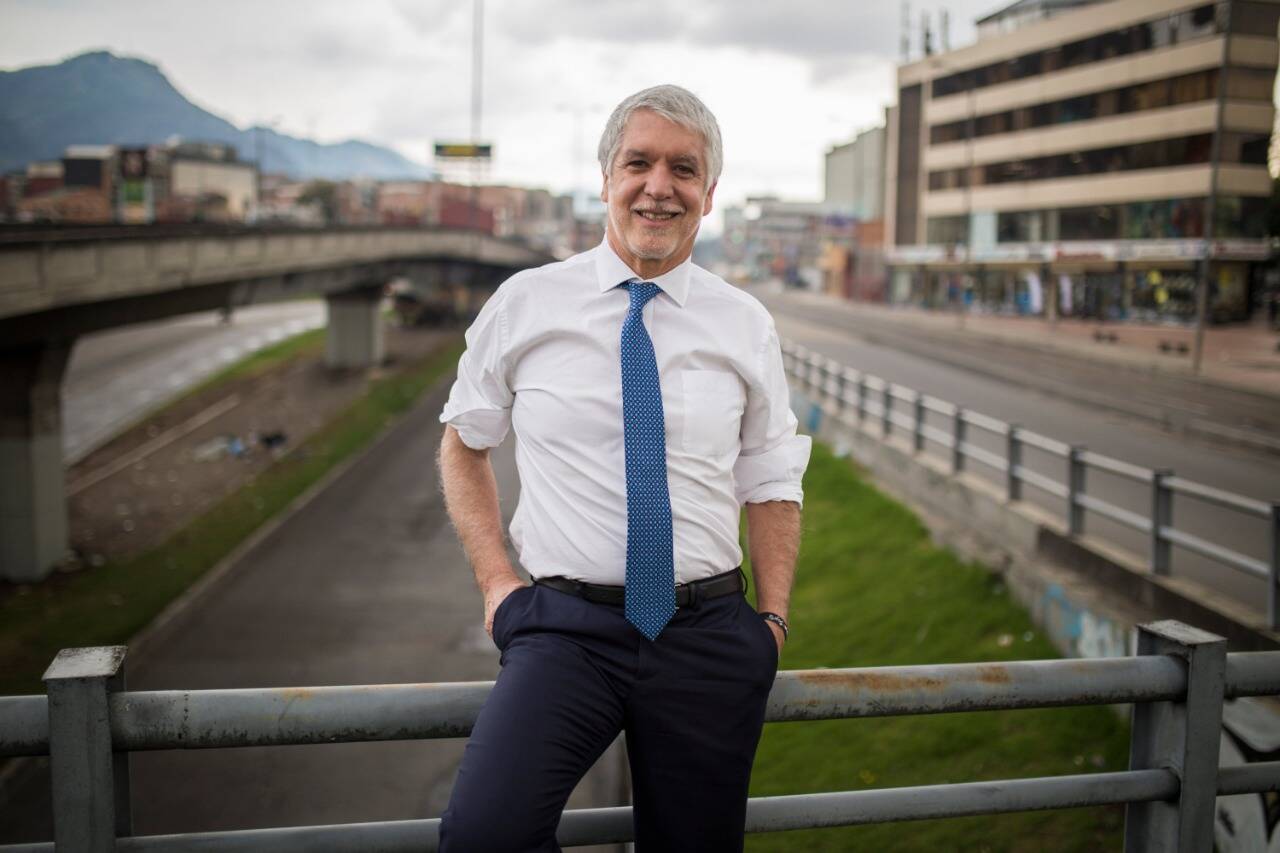
Enrique Peñalosa left the Bogotá Metro under contract. Photo: Diego Santacruz
In the end, who ends up winning depends on a myriad of unpredictable circumstances at the time. For example, the last time I ran for mayor, I had just lost four elections. In the first polls that came out, the other two candidates had 28 percent, the other 24 percent, and I had 12 percent. And I won. Right now, we're in a national emergency, and we need to unite, all of us who believe, who share certain fundamental principles of how society develops.
Along those lines, who could you join and eventually go to a consultation with? I want to clarify that I'm going to mention people with whom I would agree and feel very comfortable teaming up. It's not that there's any commitment or agreement or anything, nor am I committing them to anything. But people like David Luna, Juan Daniel Oviedo, Marta Lucía Ramírez, Juan Manuel Galán, Mauricio Cárdenas, Aníbal Gaviria. These are people with whom I would feel very comfortable forming a great team for Colombia.
Today, according to experts, polls measure recognition more than voting intention. How do you analyze today's results, which show Sergio Fajardo, Vicky Dávila, and Gustavo Bolívar leading? I've always believed in polls, but they reflect a moment in time. People haven't yet begun to think about voting, and citizens need to begin to more firmly analyze who they believe is the person they need to move Colombia forward. There are people I agree with, like Vicky, like Fajardo, but I definitely and clearly disagree with Petro and his followers, like Bolívar, because I think they are totally incompetent.
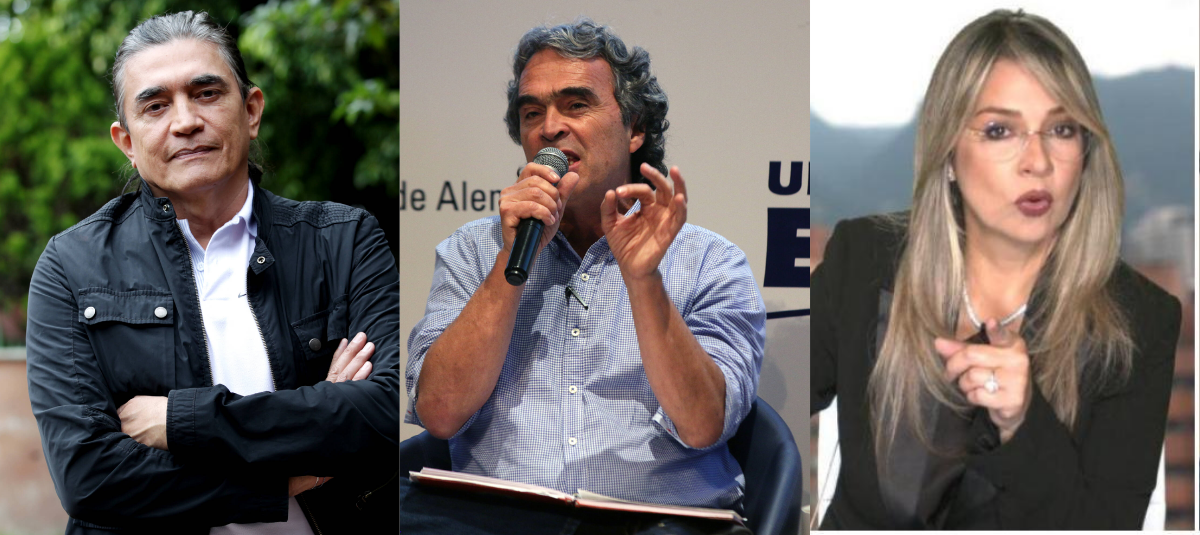
Sergio Fajardo and Vicky Dávila. Gustavo Bolívar and Sergio Fajardo. Photo: El Tiempo Archive.
There was monumental disorder. I think it's much more serious now at the national level. Furthermore, obsessions were evident, as always. What Petro always shows is that he has no capacity to act, only to speak. He has an obsession that I respect, but it's absolutely obsolete, and it's the positions of a leftist high school student from the 1960s, a leftism that has already failed, communism, statism. Every time Petro opens his mouth, he attacks capitalism. Attacking capitalism is attacking private enterprise, under another name. That, clearly, is what he feels. As mayor, with his statist obsession, which sickens him with what private companies do, he made the disaster of trying to nationalize garbage collection in Bogotá, where the city lost more than 100 billion pesos. He made a mess of the trucks. It seems that trucks and tanker trucks are his specialty. In Bogotá, at that time, they made those clumsy efforts at nationalization, and the same thing has happened at the national level.
Why do you say that? It's exactly the same. Regarding health care, what upsets Petro, and why he's dismantling a system like the Colombian one, which was respected worldwide, is that there were private companies participating in the system. Now he says he's going to change the concession-based highway construction system because he's sickened by the private sector in it. He's sickened by the private sector in the electricity sector and attacks them, and is leading the country directly toward a blackout starting next year. But once I became mayor, I didn't mention Petro for four years. I didn't go after the Petrists or even make an inventory of the disasters. Instead, I dedicated myself to working and building what needed to be built.
What will be the keys to putting the Casa de Nariño in order? I'll give you the example of transportation. Regarding transportation, Petro talks nonsense all the time, as is his specialty. But in transportation, Petro has never done anything; he didn't build trams, nor did he contract any contracts. He wasn't even able to contract the metro; he left a monumental mess, nor did he build TransMilenio trunk lines. While we, on the other hand, contract all kinds of roads, trunk lines. Everything that's being done now is practically work we contracted. We did all kinds of work, while Petro only talked.
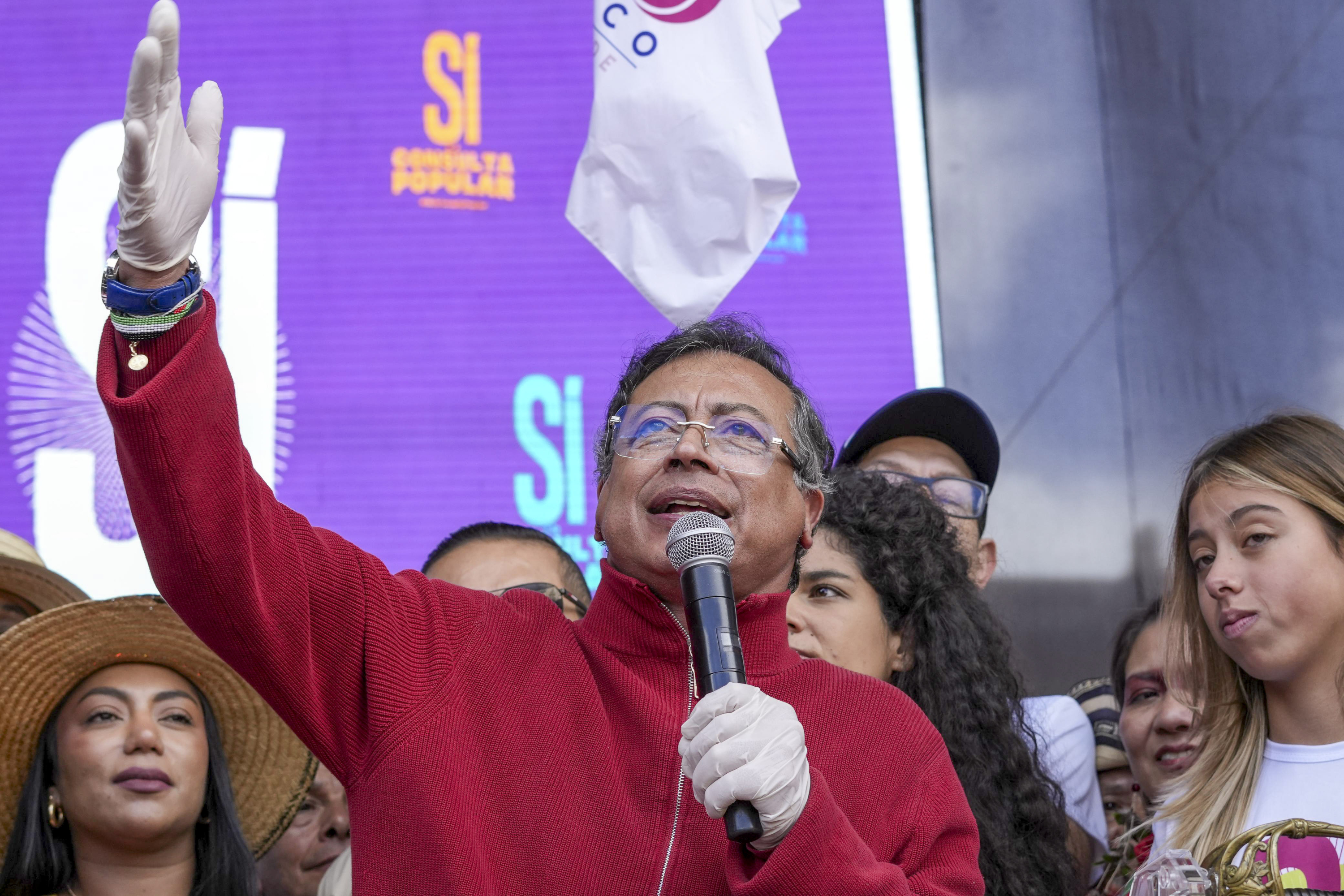
Gustavo Petro, President of Colombia Photo: Presidency
We must be clear that we need to develop. We have been falling behind in Latin America. In the last three years, almost one and a half million Colombians have left the country; they have emigrated. This is extremely serious because those who migrate, regardless of their trade or profession, are people who don't want subsidies or gifts; they want to work 80 hours a week and are willing to take risks and work hard. Losing these valuable people is a tragedy. According to surveys, Colombia is the country in the region with the highest percentage of people who want to leave their country. Let's assume that people are leaving because they want to live in a richer country. We need security, more private investment. That's the only way. It's not through labor reforms or populist referendums. The goal must be a developed Colombia.
What other points will you bet on? Education is another fundamental reform. Parents take their children to school and feel very comfortable because they left them there. So, there's a nice school and the teachers are kind, but the reality is that Colombian children aren't learning in school. But the results on national and international tests are disastrous. Then, when they graduate from high school, they don't know science, math, much less languages, and they end up looking for a career that doesn't require math, for example. In Bogotá, we did revolutionize charter schools. We managed to get children in strata 1 and 2 to achieve results equivalent to those of high-income private schools. One of the profound reforms that must be implemented is to ensure that teachers are paid very well and are rewarded based on how much their students learn, not based on their years of education or their postgraduate degrees.
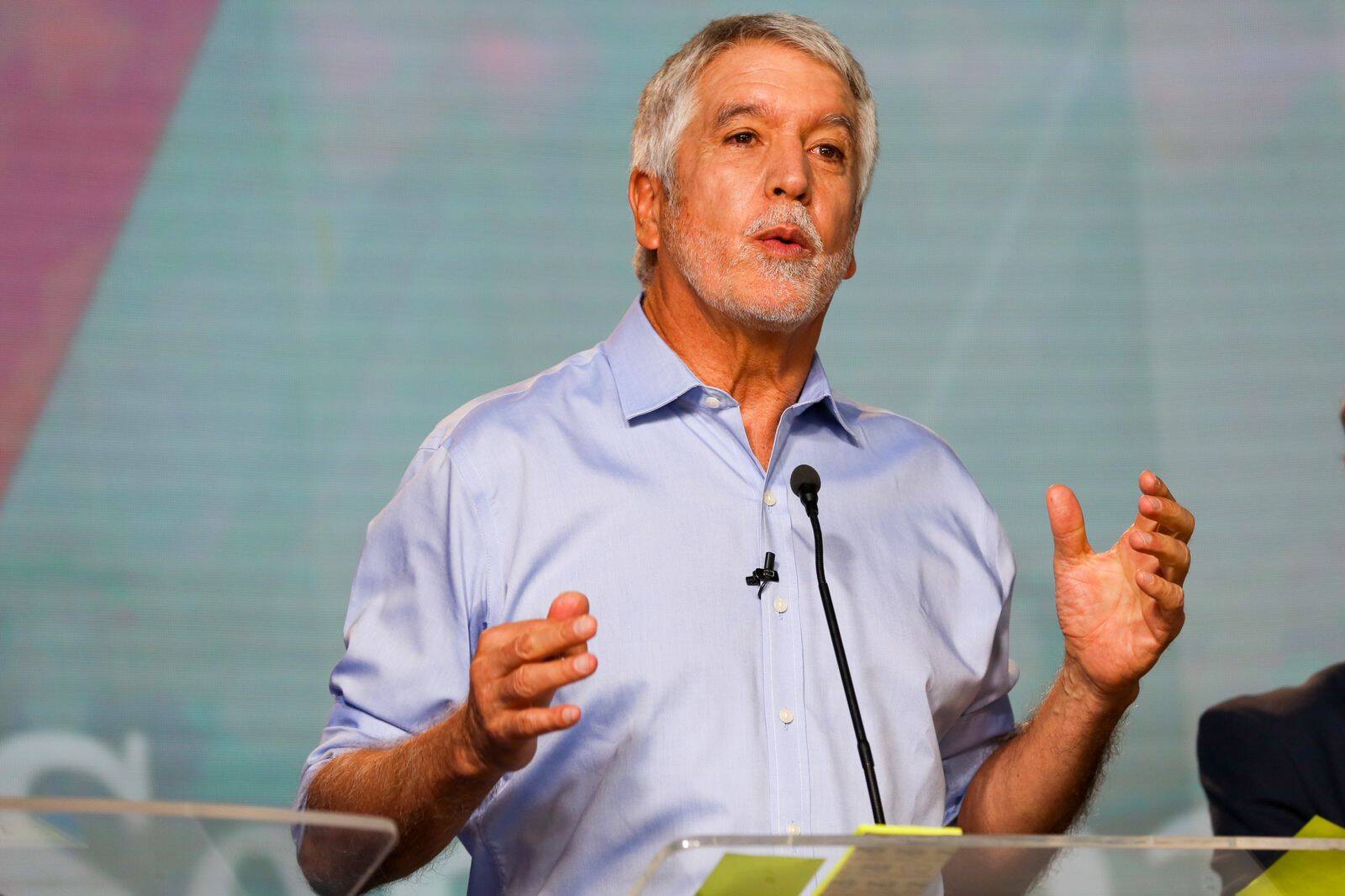
Enrique Peñalosa participated in the 2022 presidential referendum "Team for Colombia." Photo: César Melgarejo
We need change to build equality, but for real. To a large extent, that equality and that change are urban. Today, 85 percent of Colombians live in urban areas. Colombia's quality of life, competitiveness, and equality largely have to do with urban issues. I honestly know a lot about that. One of my obsessions is for citizens to have access to nature, for children to be able to go on field trips, to nature. Based on my experience, there are some very important things we've achieved: in healthcare, we've built hospitals and improved organization, the quality of education, and security. Basically, because—here I have a huge difference with Petro, gigantic, the biggest of all—I'm not a galactic genius, like Petro; I simply have a capacity, and it's choosing people much better than me to form an excellent team, getting those people to work as a team and produce results with technique. It's not about appointing people for ideological or political reasons, but for their technical and managerial capacity. That has allowed me to achieve results that truly build equality.
Speaking of results, what do you feel when you see those metro pillars in Bogotá? Not only do I feel very proud of having invented TransMilenio, which has been copied in more than 300 cities around the world, something that built equality and allowed citizens on public transportation to travel faster than those in cars for the first time. Contrary to Petro's lies, when I arrived at the mayor's office, not only did I not receive any ready-made studies, but what we received was a monumental mess—worse than having received anything at all. We had to, first, untangle all the messes they left and start everything almost from scratch. In addition, we created the Metro company, put out bids, and contracted the subway. Since it's progressing so well now, all kinds of people are accusing us of making the subway possible. But if I had a problem, Peñalosa would be responsible. This reminds me of a saying: "Success has many fathers, and failure is an orphan."
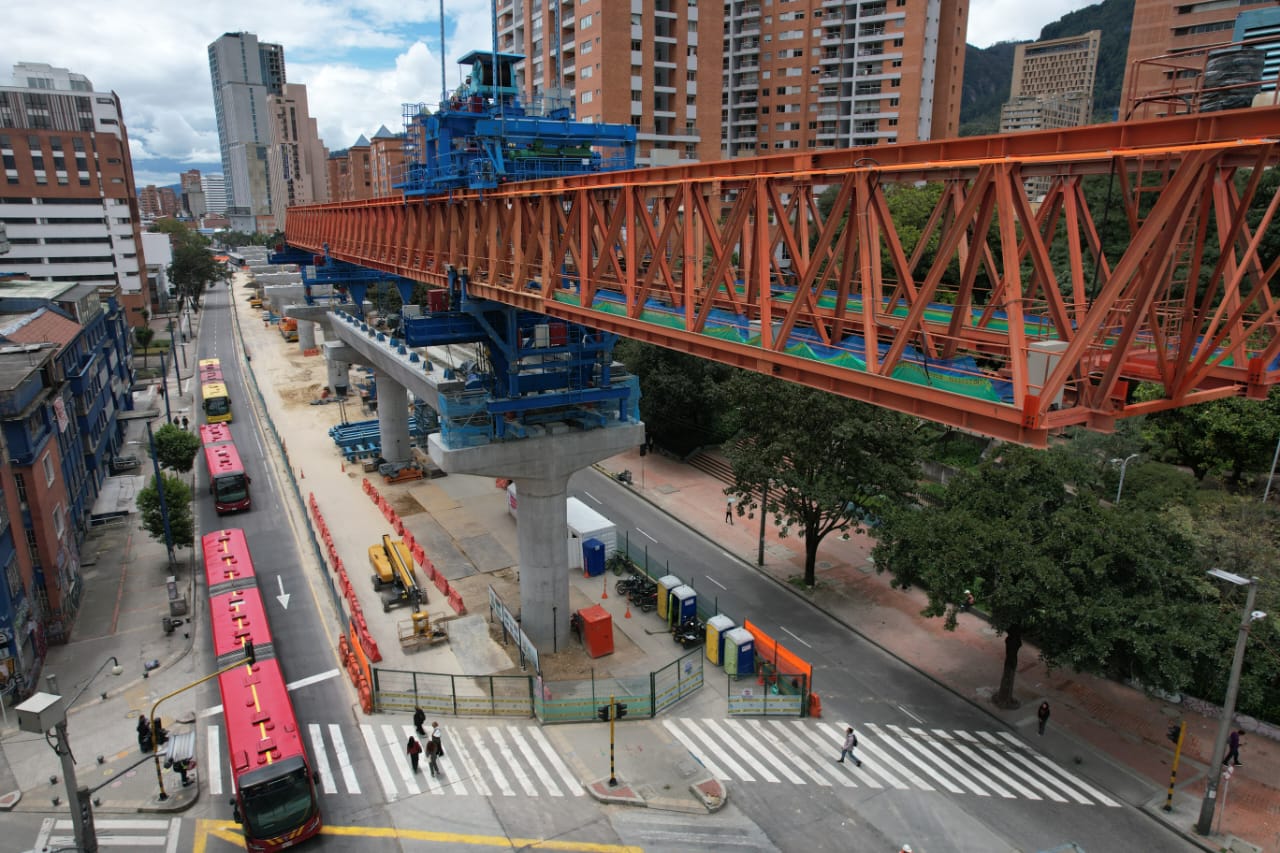
Construction on the Bogotá metro is now more than 50 percent complete. Photo: Milton Díaz - @Miltondiazfoto / El Tiempo
We have some issues of utmost urgency. The first is security. There are heroes here who will save us; they are the most important at this historic moment: the special forces of the Army and the Police. No one is more important. One doesn't understand why these special forces aren't the highest earners in the State. Any official from the Comptroller's Office earns much more than one of these heroes who are in the middle of the jungle saving us from total chaos. We must dedicate ourselves to having the military and police capacity to defeat criminal organizations of all kinds. And we must implement legal reforms to be able to release criminals from prison. That is the highest priority right now. There is nothing more important than order. Our Constitution is full of rights, but we have forgotten the most important of all, which is the right to live without fear.
eltiempo





